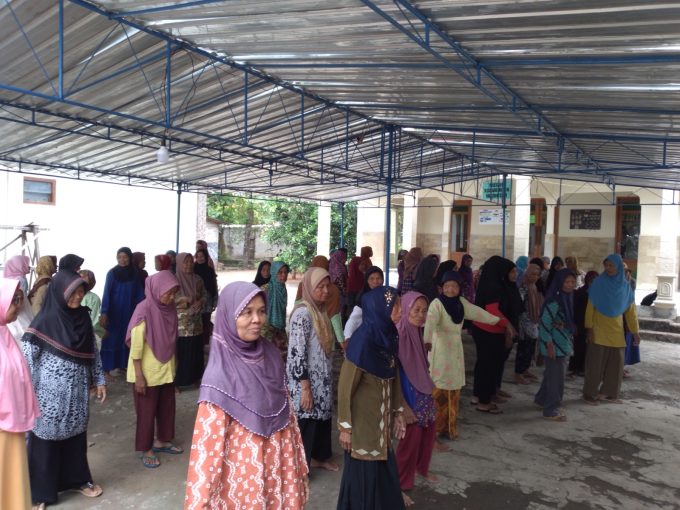
The Elderly Phase and Its Characteristics
The elderly phase begins at the age of 60, a period marked by shifts in social roles and often characterized by increased needs for health support. This phase has unique traits, such as emerging physical health issues, the potential loss of social roles, and intensive psychological adjustments. The growing elderly population, as seen in Indonesia today, reflects significant demographic changes and presents both challenges and opportunities to support elderly well-being and active participation in society. The elderly can provide valuable contributions through the life experiences and knowledge they have accumulated, while also facing challenges stemming from social, physical, and psychological changes related to aging. Therefore, understanding the social and psychological context of aging is crucial for supporting their sustainable well-being.
Social Support for Elderly Well-being
The need for social support among the elderly can be fulfilled through social networks such as family, peers, and community. Support from close individuals can improve psychological well-being and strengthen the physical resilience of the elderly in facing daily life challenges. According to the social support theory, elderly individuals who receive support from their social environment are better able to cope with the stress associated with physical and psychological changes they experience (Antonucci, 1985). For example, elderly individuals who are actively involved in community groups—such as religious activities, sports clubs, or other associations—show higher levels of well-being compared to those who are socially isolated (Derkx et al., 2020). Social interaction not only provides psychological benefits but also serves as a vital source for physical health. Elderly individuals who feel a strong sense of social connectedness have a lower risk of chronic illnesses such as hypertension, heart disease, and depression (Lee & Oh, 2020). In this context, a supportive community that encourages elderly participation has a positive impact on their overall well-being, both physically and psychologically.
Elderly Individuals and Identity Development in the Context of Social Roles
Research conducted by the Center of Lifespan Development (CLSD) at the Faculty of Psychology, Universitas Gadjah Mada, found that the roles of elderly individuals in social settings—such as grandparents, retirees, community leaders, or group members—affect the formation of a positive self-identity. However, role transitions often bring challenges, particularly if they feel a loss of roles that were once very meaningful. For example, retirees who previously held important positions in the workplace may feel a loss of purpose and identity when they are no longer working. This can impact their perception of life, especially if they are unable to find new roles or activities that provide them with meaning and purpose. Participation in social activities can be a pathway to achieving integrity and a sense of life fulfillment (Erikson, 1994). To support elderly individuals in living meaningful lives, facilitation is needed to keep them connected with the community and maintain positive interpersonal relationships. Aging nations like Japan have implemented proactive policies to enhance elderly well-being, including the development of senior activity centers, social support, and elderly-friendly geriatric health services. In Indonesia, similar policies can be applied with approaches that consider the cultural and social needs of the elderly. Policies supporting the elderly should also involve them in community activities and intergenerational programs, such as establishing senior activity centers and volunteer programs that engage the elderly as mentors. By creating opportunities for elderly individuals to contribute actively, they not only feel acknowledged but also have the chance to continue growing and inspiring younger generations.
Conclusion
The elderly phase is not merely a period of aging but also a significant stage of development in social and psychological contexts. With support from family, communities, and appropriate policies, elderly individuals can live meaningful lives while staying connected to their social environment. The role of the elderly in society—through their contributions and active involvement—can bring benefits not only for themselves but also for the broader community, fostering social harmony and strengthening intergenerational solidarity. To encourage family and community involvement in elderly care, a collaborative approach is needed, focusing not only on direct support but also on enhancing the capacity of families and communities to respond to the needs of the elderly. Families can be encouraged to take an active role in elderly care through education on mental and physical health for the elderly. This will enable family members, especially caregivers, to feel more confident and capable of providing proper support. Additionally, creating inclusive community environments for the elderly—such as senior activity centers or intergenerational programs—can strengthen social interactions and reduce feelings of isolation often experienced by elderly individuals.
Referensi
Antonucci, T. C. (1985). Social support: Theoretical advances, recent findings and pressing issues. Social support: Theory, research and applications, 21-37.
Derkx, P., Bos, P., Laceulle, H., & Machielse, A. (2020). Meaning in life and the experience of older people. International Journal of Ageing and Later Life, 14(1), 37–66. https://doi.org/10.3384/ijal.1652-8670.19467
Erikson, E. H. (1994). Identity and the life cycle. WW Norton & company.
Lee, M. K., & Oh, J. (2020). Health-related quality of life in older adults: Its association with health literacy, self-efficacy, social support, and health-promoting behavior. Healthcare, 8(4), 407.
